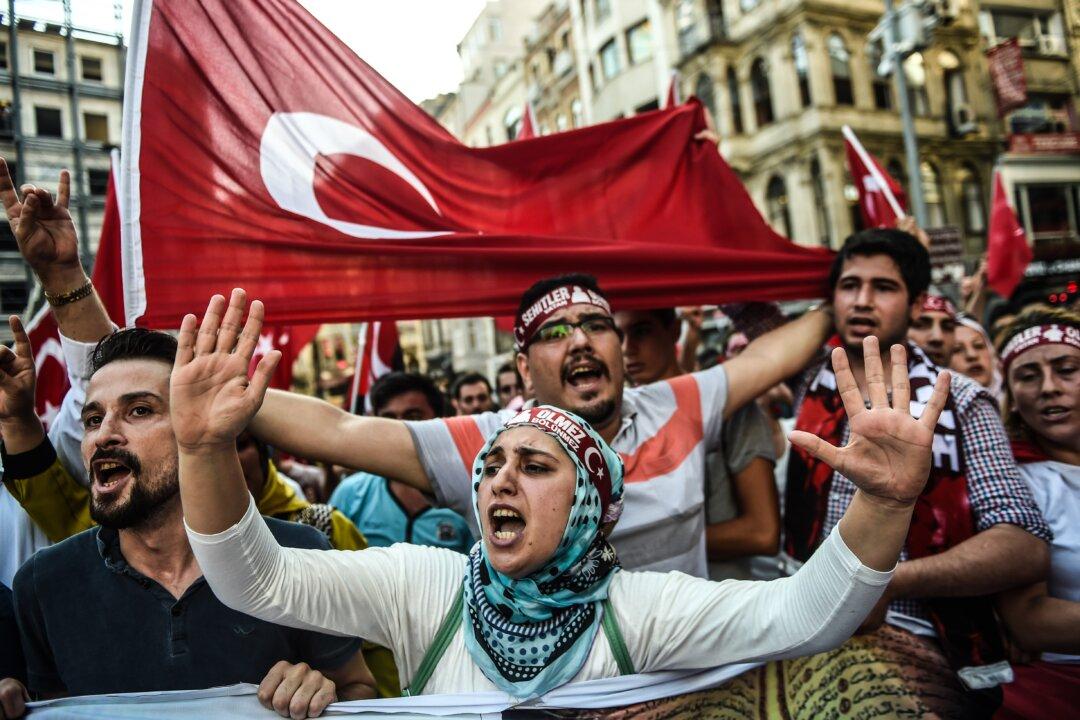Focus
HDP
LATEST
Big Win by Turkey’s AKP Signals Vote for Stability
Turkey’s Justice and Development Party, also known as AKP, won 317 seats in the General National Assembly with Sunday’s election– more than expected and more than the 276 needed for a majority, but not enough to change the constitution directly. The results confounded pollsters since AKP failed to win a majority in June elections or form a coalition government. “Confronting renewed conflict with Kurdish militant groups and the devastating consequences of four years of war in Syria, Turks voted to continue current policies to manage the country’s long-running conflicts,” writes Chris Miller, associate director of Yale University’s Grand Strategy Program. Western partners are impatient with the Turkish president’s intolerance of opposition. The decisive win, combined with increased support for AKP from ethnic Kurds, could add pressure for a peace deal with Kurdish PKK militants, Miller explains. Turkey’s ruling party and the Kurds have reason to cooperate in battling Islamic State extremists that control large sections of neighboring Syria and threaten the entire region.
|
Turks Vote as Ruling Party Seeks to Claw Back a Majority
Turks headed to the polls Sunday for the second time in five months in a crucial election that will determine whether the ruling party can restore the parliamentary majority it enjoyed for 13 years.
|
Turkey: Erdogan Is Forcing His People to Take Sides
Polarization has been a problem for Turkey for a long time. But now, the division between the ruling party’s supporters and its rivals is one of the country’s biggest fissures.
|
Big Win by Turkey’s AKP Signals Vote for Stability
Turkey’s Justice and Development Party, also known as AKP, won 317 seats in the General National Assembly with Sunday’s election– more than expected and more than the 276 needed for a majority, but not enough to change the constitution directly. The results confounded pollsters since AKP failed to win a majority in June elections or form a coalition government. “Confronting renewed conflict with Kurdish militant groups and the devastating consequences of four years of war in Syria, Turks voted to continue current policies to manage the country’s long-running conflicts,” writes Chris Miller, associate director of Yale University’s Grand Strategy Program. Western partners are impatient with the Turkish president’s intolerance of opposition. The decisive win, combined with increased support for AKP from ethnic Kurds, could add pressure for a peace deal with Kurdish PKK militants, Miller explains. Turkey’s ruling party and the Kurds have reason to cooperate in battling Islamic State extremists that control large sections of neighboring Syria and threaten the entire region.
|
Turks Vote as Ruling Party Seeks to Claw Back a Majority
Turks headed to the polls Sunday for the second time in five months in a crucial election that will determine whether the ruling party can restore the parliamentary majority it enjoyed for 13 years.
|
Turkey: Erdogan Is Forcing His People to Take Sides
Polarization has been a problem for Turkey for a long time. But now, the division between the ruling party’s supporters and its rivals is one of the country’s biggest fissures.
|



